MBG Informatics Symposium
The MBG Informatics Symposium held on November 15, 2024 was a huge success with plenty of attendees both in person and online. From our department the following members presented at the symposium: Rachel Brant (DNA meta-barcoding), Wen Kuo (Leveraging tools in plant conservation), Brock Mashburn (Cluster support for genomics), Adam Smith (Rigorous statistical geo-statistical analysis of species of conservation concerns using error-in-covariates and External computational resources), Ivan Jimenez (R basics workshop).
Our REU students 2024
Sage Waite (University of West Alabama) and Maia Washington (Dickinson College) worked with Christy Edwards, Ivan Jimenez, and Matthew Albrecht on the Project: Investigating the role of adaptive phenotypic variation in ex-situ conservation programs. Maia's presentation "Phenotyping using photography in Physaria globosa (Brassicaceae) to inform conservation of a rare plant species" and Sage's presentation "Assessing the extent of phenotypic variation between regions in Boltonia decurrens" were well received at the Summer Interns Symposium at the Garden.


________________________________________________________
Lab tour for volunteers from the education department
October 9, 2023, a group of volunteers from the education department of the Garden visited our Conservation Genetics Lab. Burgund Bassuner explained the work of the lab and answered all the interesting questions asked by the volunteers. Both Garden staff and volunteers said that they were fascinated by the conservation work that CCSD does.
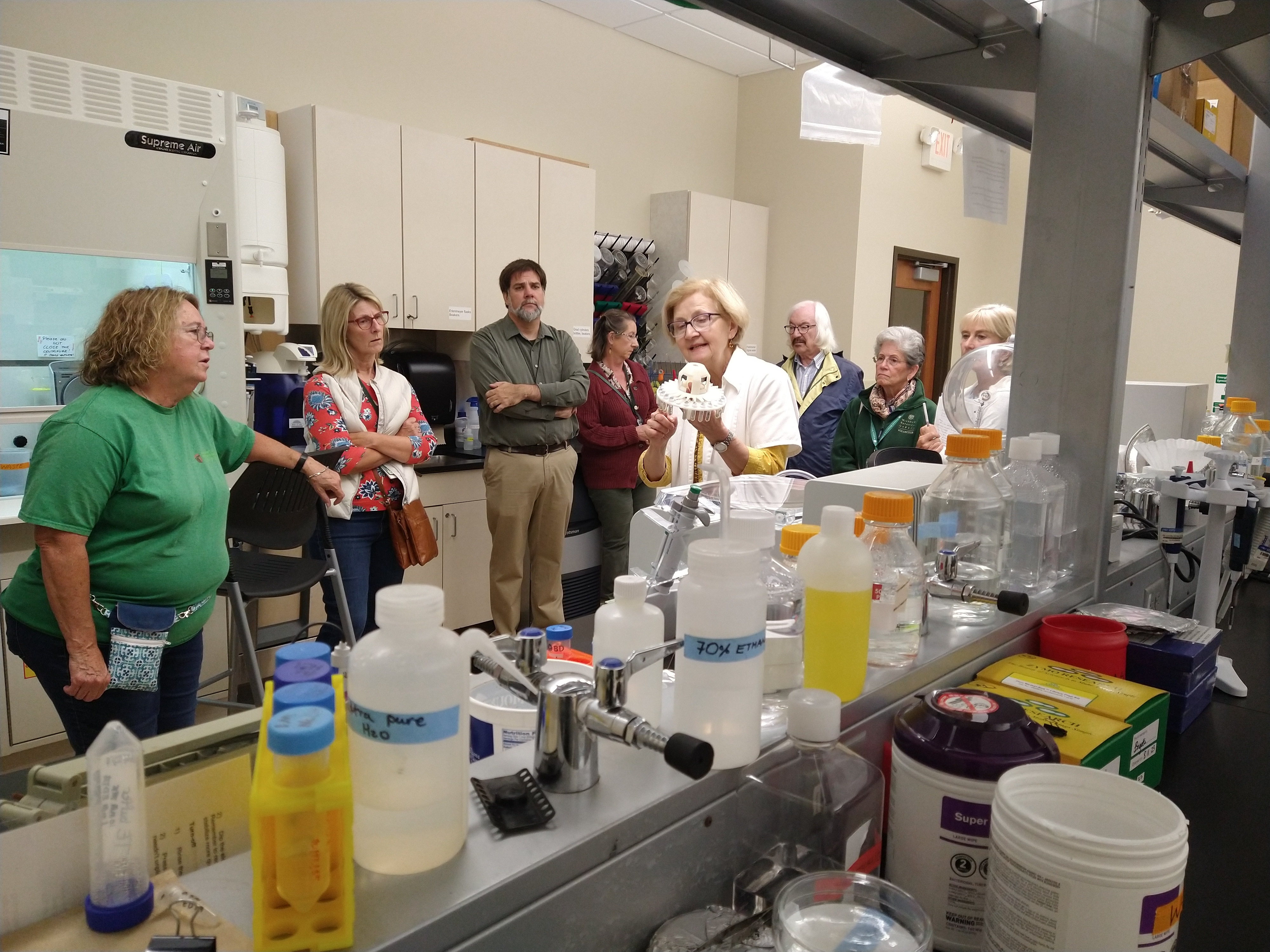
Our 2023 REU students, their projects, and mentors
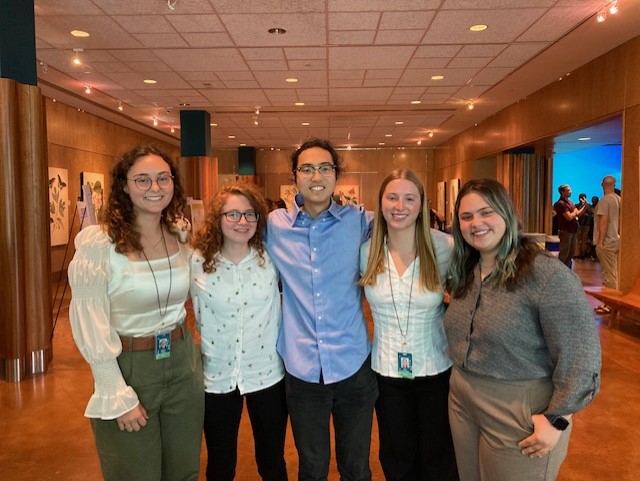
Maura Collins (Washington College). Survival and phenology variation in a threatened oak species (Quercus arkansana) by provenance and maternal lineage. Mentors: Iván Jiménez, Becky Succher and Georgia Thomas. Heather Gray (Appalachian State University). Effects of prairie restoration practices on vegetation structure and invasion by Sericea lespedeza. Mentors: Andrew Kaul and Matthew Albrecht. Luka Sato (Brown University). Phylogeny and species boundaries of Xyris in North America (Xyridaceae, Poales). Mentor: Christy Edwards. Aliya Swearngin (Grinnell College). Phylogeny reconstruction and population genetic analysis to assess the distinctiveness of Trifolium kentuckiense. Mentors: Brigitte Williams and Christy Edwards. Allison Rea (Washington University in St. Louis) Provenance-dependent variation in the growth rate of a threatened shrub (Neviusia alabamensis) at a common garden. Mentors: Iván Jiménez, Becky Succher and Georgia Thomas
New publication, June, 22, 2023
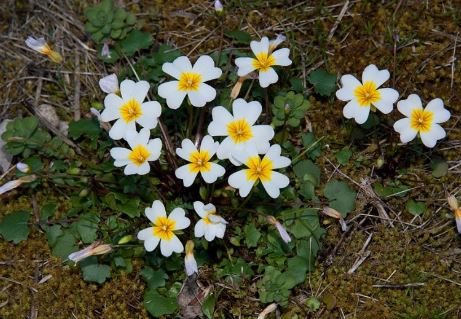
The article on Leavenworthia phenology came out this past week. This involved Matt Austin (LEC postdoc), Amy Zanne (Garden Research Associate), James Beck (Garden Research Associate), and Kelsey Bartlett (undergrad, Graham Fellowship awardee), and Adam Smith. Matt Austin also worked with HEC Media to produce a short mini-documentary on the paper.
Follow the link for the mini documentary and here you could read the paper.
Matthew Albrecht in interview
Matthew Albrecht was interviewed on Saint Louis on the Air "How to bring extinct plants back from the dead". To learn more, please follow the link.
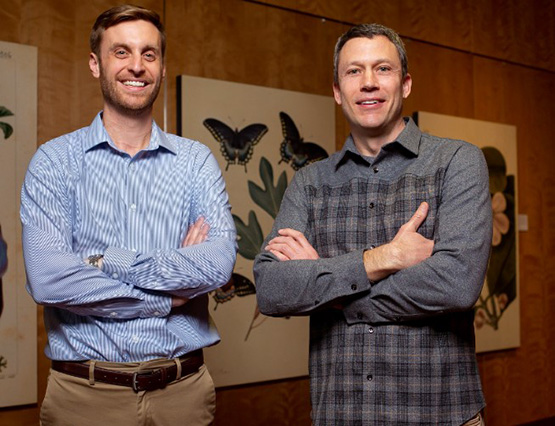
Photo: Brian Munoz, St. Louis Public Radio, 2/20/23
Webinar with 400 viewers
Drs. Adam Smith, Stephen Murphy, and Kelley Erickson, completed a webinar on using herbarium and museum data in ecology that was attended by 400 viewers April 10, 2020. Information on the webinar, including a recording, can be found here.
Genome Publication Award 2019
Dr. Christy Edwards won with her publication: "Evaluating the efficacy of sample collection approaches and DNA metabarcoding for identifying the diversity of plants utilized by nectivorous bats" (Genome, 2019,62(1): 19–29, https://doi.org/10.1139/gen-2018-0102) the Genome publication Award 2019 from the National Research Council of Canada (NRC) Research Press.
Congratulation to Isabel and Serena
Isabela Loza and Serena Acha defended their PhD Thesis at UMSL in 2019. Both came from the Madidi Project to our department. Isabela was co-advised by Ivan Jimenez and Serena by Christy Edwards.
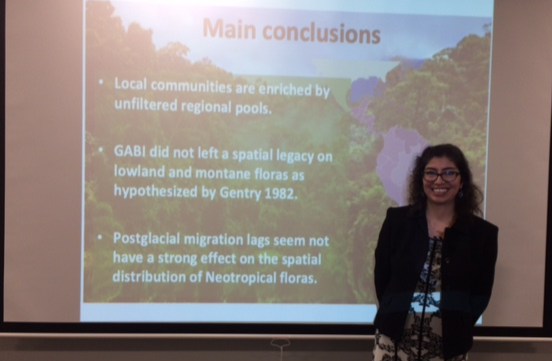
Award for Rodolfo Vasquez

Rodolfo Vasquez, director of our program in Peru, was honored by the botanical and conservation communities in an event in his honor, organized by the Universidad Agraria La Molina in Lima.
He was also honored by the Peruvian Ministry of the Environment on the occasion of the celebration of the XXXIII Anniversary of the creation of the Yanachaga-Chemillen National Park for his contributions to the conservation of the Park.
List of Fellowship winners 2020
Please find it here.
Welcome
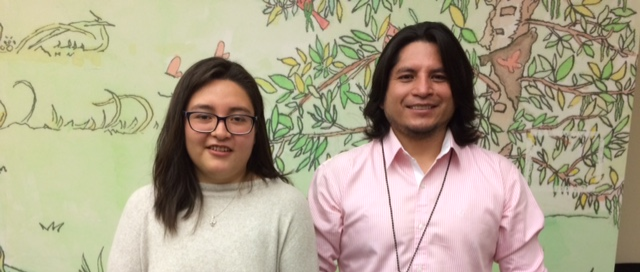
We welcome Belen Alvestegui from Bolivia and William Farfan-Rios from Peru at CCSD. Belen recently finished a bachelor’s degree in biology at Universidad Mayor de San Andes in La Paz Bolivia as part of the Madidi Project. She is now pursuing a master’s degree at UMSL thanks to a Davidson & Christoph fellowship from CCSD and a Christensen fellowship from the Harris Center at UMSL. She will be studying how species traits in flowers, leaves and wood determine their rarity in Andean forests. William recently graduated with a Ph.D. from Wake Forest University, where he studied how climate change affects forests in Peru. As a postdoctoral fellow funded by the Living Earth Collaborative, William will collaborate with Jonathan A. Myers and J. Sebastian Tello to expand his research and study the responses of species and ecosystems to environmental change across the tropical Andes, a major biodiversity hotspot.
CCSD members presented at SLEEC 2019
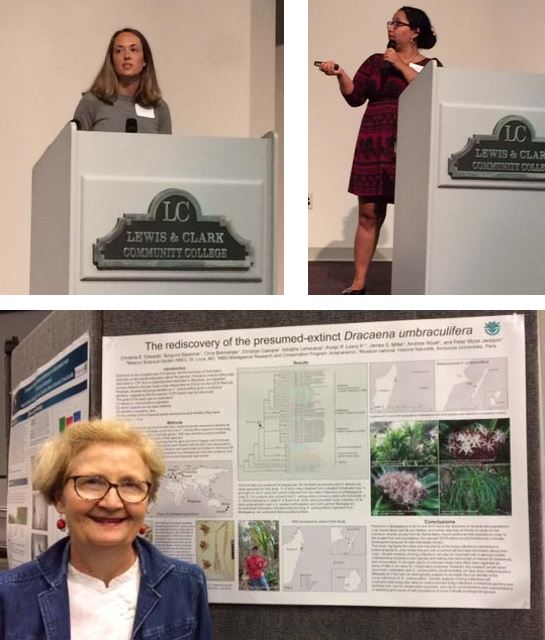
Brigette William (PhD student at SLU), Serena Acha (PhD student at UMSL), Stephen Murphy (PostDoc) and Burgund Bassuner (Science Specialist) participated and presented at the St. Louis Ecology, Evolution, and Conservation (SLEEC) at the Louis and Clark Community College in Godfrey, IL, September 21, 2019.
REU Students at CCSD
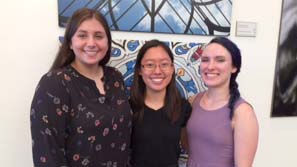
Mahala Lorenzo (M. Albrecht, L. Reed), Amy Ann (I Jimenez), and Dorrie Wamser (Christy Edwards) were our 2019 REU students.
Thesis Defense and Welcome at CCSD, 2019
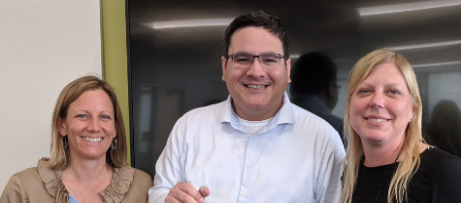
Alex Linan defended his PhD thesis at st. Louis University April 23, 2019.
He was co-advised by Dr. Christy Edwards (MBG) and Dr. Allison Miller (SLU). Alex started to work as a post-doc with Dr. Christy Edward and Dr. Sebastian Tello at CCSD on the Madidi Project at the beginning of August.
Star Award 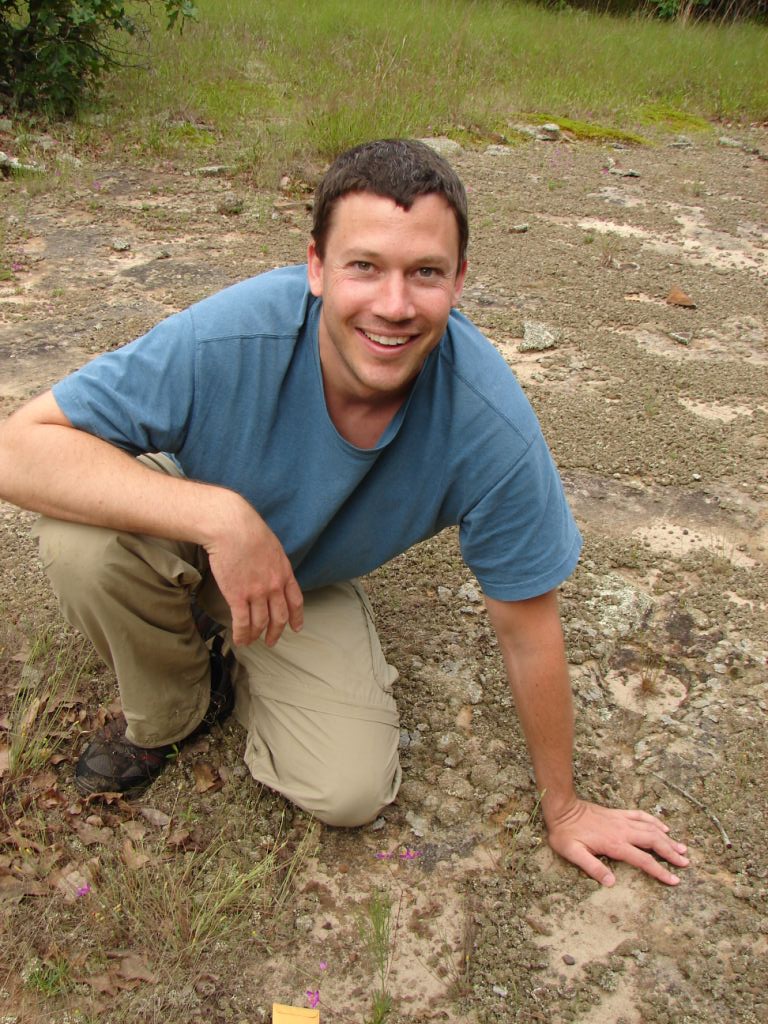
We congratulate Matthew Albrecht, who received this year's prestigious Star Award at the Center for Plant Conservation National Meeting in Chicago, May 3, 2019
Cities as "arks" for biodiversity
Adam Smith, our Global Change ecologist, was interviewed by a reporter for an article on using cities as “arks” for biodiversity.
Grand from National Geographic
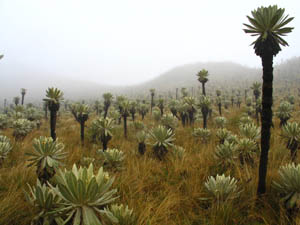
Ivan Jimenez received a grant from National Geographic to support a study of how species of Espeletia, a genus endemic to the northern Andes, respond to global change. An interesting aspect of this project is that it uses anthropogenic impacts to the conservation of high elevation environments. Ivan and his collaborators, César A. Marín, from Jardín Botánico de Bogotá José Celestino Mutis and Carlos Arturo Lora, from Parques Nacionales Naturales de Colombia will use satellite data and field observations to conduct the study.
Grant from the Missouri Department of Conservation (MDC)
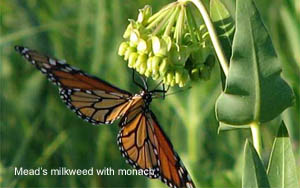
CCSD’s conservation genetics lab got funding approved for a new project with the title
“The effect of genetic diversity on fecundity in Mead’s milkweed (Asclepias meadii)”.
Christy Edwards and Matthew Albrecht are leading the project in collaboration with the Mead’s milkweed recovery team including MDC Resource Science Division, U.S. Fish & Wildlife Service (USFWS), Missouri Department of Natural Resources, United States Forest Service, The Nature Conservancy, and Missouri Prairie Foundation, Kansas Biological Survey, Iowa Department of Natural Resources, Illinois Natural History Survey, and other agency biologists that manage Mead’s milkweed populations. A technician will be hired at the beginning of 2018 to manage the elaborative field work and genetic analysis of the plants.